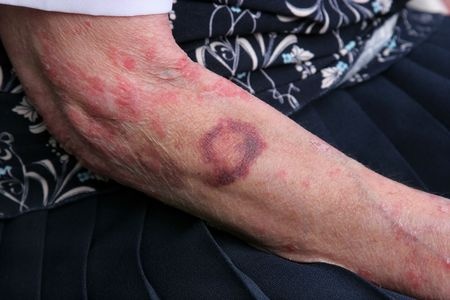Bed Sores: A Sign of Nursing Home Abuse?

Bed sores, also known as decubitis ulcers and pressure sores, are one of the most common warning signs of nursing home abuse.
Bed sores are not a natural byproduct of aging. They are progressive, painful symptoms of neglect, and if you notice bed sores on a family member who resides in a nursing home or assisted-living facility, you should immediately contact the authorities and an experienced Newark nursing home abuse lawyer. Anthony Carbone is a nursing home abuse attorney in Essex County with the experience and knowledge necessary to protect the rights of your loved one.
What are Bed Sores?
Bed sores are skin injuries caused by continuous pressure to a specific area over an extended period of time. This pressure reduces blood circulation in the affected area and leads to the skin dying and eroding, eventually producing open sores.
Bed sores typically form around bony pressure points, such as the tailbone, hips and elbows. Initially, bed sores may be mildly irritating. Left untreated, bed sores become open wounds that are agonizing and prone to infection.
Early treatment can limit the serious health risks of bed sores. Allowed to fester, bed sores can penetrate to the underlying muscle and bone and contribute to life-threatening medical problems including sepsis and cancer. The longer bed sores progress, the more difficult and painful treatment becomes.
What Causes Bed Sores?
In nursing homes, bed sores are typically the result of lengthy immobilization in a bed, chair or wheelchair. Even patients who are prescribed bed rest or are confined due to a physical disability should be regularly repositioned by caregivers to relieve pressure and allow proper circulation.
Bed sores develop in four stages:
- Stage 1: Reddish, irritated patches of skin that may feel warmer than the surrounding skin
- Stage 2: Skin has slightly eroded, leaving an open wound that may appear as a minor abrasion or blister
- Stage 3: A deepening, crater-like wound that extends into the subcutaneous tissue
- Stage 4: Deep tissue loss that may expose muscle, tendons and bone
The prevention of bed sores is easy. The treatment of and recovery from bed sores is not, especially in the elderly, who may have diminished immune systems or other health problems that amplify the risks associated with bed sores.
If you have a family member in a nursing home and you notice bed sores, or if you believe your loved one to be otherwise suffering forms of abuse or neglect, please contact the Law Offices of Anthony Carbone, P.C. today to schedule a consultation with our bed sores lawyer in New Jersey Anthony Carbone.


